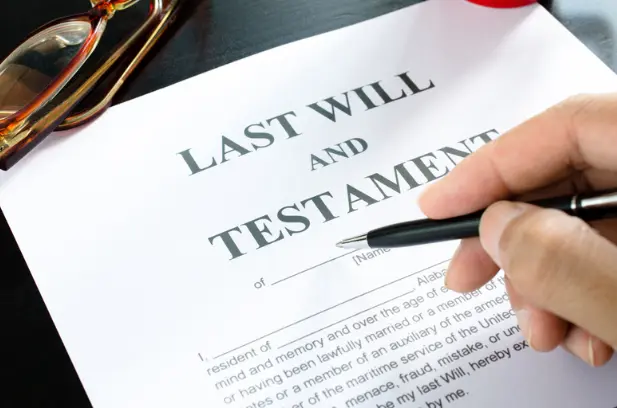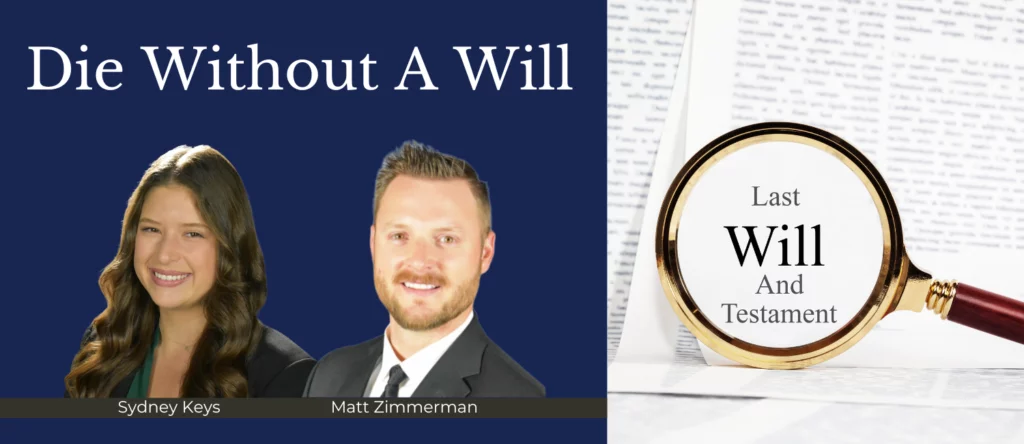
 The subject of death and our own mortality are difficult topics for many people, but it’s important to talk about what happens when someone passes away without a will. It’s especially challenging when it happens to a loved one, and it’s even more challenging when they lived here in Texas.
The subject of death and our own mortality are difficult topics for many people, but it’s important to talk about what happens when someone passes away without a will. It’s especially challenging when it happens to a loved one, and it’s even more challenging when they lived here in Texas.
There are specific laws in place here in the Lone Star State that determine just how your property will be distributed should you pass away without a will. In this post, we’re going to explore what happens when you die without having a will in Texas so that you and your loved ones can be better prepared.
What is a Last Will and Testament?
First, let’s cover what exactly a will is. A will is a legal document that outlines your wishes for how your assets and property will be distributed after your death. It doesn’t matter how large your estate is, whether you own a home, cars, or have investments. Without a will, the state of Texas, not you, decides how your assets and property are divided after you’ve died, based on predetermined laws. You have no control over which family members or loved ones receive your assets.
In short, dying without a will means that you won’t have any say over who receives your property after your death.
Why is it important to have a Will?
Let’s talk about the importance of having a will. A will allows you to appoint an executor, this is a person who manages your estate after your death and distributes it according to your wishes. You can also use a will to appoint a legal guardian for any underage children you have. It’s important to note that without a will, the state may assign a guardian for your children, which could be someone whom you don’t want raising your kids.
How does Texas law treat wills?
The state of Texas employs a legal concept called “intestate succession” for estates that are worth more than $75,000 and lack a will or other estate planning documents. This means that the state will distribute your assets and property in a specific order to surviving family members or heirs.
Here are some of the key points to know about how Texas law handles intestate succession:
- If you have a spouse, but no descendants, your spouse inherits your entire estate.
- If you have children, but no spouse, your children inherit your entire estate.
- If you have a spouse and children, your spouse usually gets half of your estate, and your children inherit the other half.
- If you don’t have any living relatives, your estate goes to the state of Texas.
What can happen if you don’t have a will?
There are several potential drawbacks of dying without a will. One of the biggest drawbacks is that the court costs and legal fees can be substantial. This is because without a will, the state, not your family, has to determine who is entitled to your assets through a legal process. Additionally, without a will, your assets might not be distributed the way you want them to be. This can be especially damaging if you have an estate that includes a lot of personal property or if you have family members who you think might fight over your assets. See our related story on this topic: House of Yahweh Hawkins Will Challenged.
And you can ask any probate attorney, fights do happen among family members over assets, especially where large amounts of money are involved.
No one likes to think about their own mortality, but it’s important to consider what will happen to your property and assets after you pass away.
Dying without a will in Texas means that the state has control over how your assets are distributed, which could be detrimental to your loved ones. Having a will gives you peace of mind and the ability to appoint an executor and legal guardian for any underage children, and it allows you to specify exactly how you want your assets and property distributed.
Remember, planning for the future can protect you and your family in the long run.

